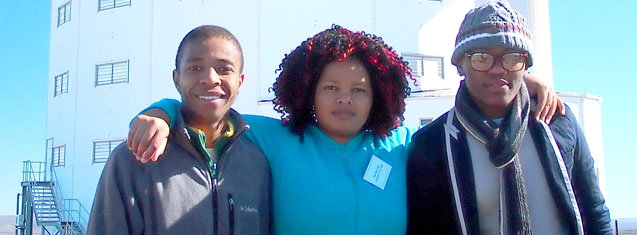Latest News Archive
Please select Category, Year, and then Month to display items
29 August 2024
|
Story Anthony Mthembu
|
Photo Harmse Photography
 Ross van Reenen, CEO of the Toyota Free State Cheetahs.
Ross van Reenen, CEO of the Toyota Free State Cheetahs.
The Business School at the University of the Free State (UFS) recently hosted the CEO of the Toyota Free State Cheetahs, Ross van Reenen, for a guest lecture. Van Reenen presented the guest lecture in the Business School Auditorium on the UFS Bloemfontein Campus on 21 August 2024.
Reflecting on Van Reenen’s address
In a lecture addressed to an auditorium filled with UFS staff and students, Van Reenen’s talk was divided into several sections. Firstly, he spoke about the concept of the ‘black swan’ in reference to the book written by Nassim Nicholas Taleb, titled The Black Swan: The Impact of the Highly Improbable. Referring to Taleb’s book, Van Reenen defined a ‘black swan’ as a rare event that has a severe impact, and the occurrence of which people try to explain. He used some examples to explore this concept as well as its implications, including COVID-19 and its impact on the world, and the tragic death of the people in the Titanic disaster. However, he delved deeper into 9/11 and the extent of its impact, saying that “9/11 was a major wake-up call in the world economy”. Van Reenen highlighted how some companies such as Barclays, for which he previously consulted, had to work to be up and running after the collapse of the Twin Towers in 9/11.
In addition, Van Reenen’s lecture also touched on the importance of the first ninety days of a job after an individual has been employed. “Those first ninety days are crucial, as you have to establish yourself in a company where you are paid less than you are worth,” Van Reenen said. As such, he gave the audience insight into what they could focus on in that time frame. This includes focusing on the small wins, as well as ensuring that you are working at keeping the team together, as the team is an integral part of an organisation.
Van Reenen concluded his address by speaking about his time as the CEO of the Toyota Free State Cheetahs, including some of the decisions he took to ensure the success of the organisation.
Students attend prestigious National Astrophysics and Space Science Programme
2014-08-22

From the left are: Thokozane Ngcongwane with Mbali Xaba and Thabo Kumalo (both third-year Physics and Chemistry students).
Three students from our Qwaqwa Campus – Thokozane Ngcongwane, Mbali Xaba and Thabo Kumalo – were recently selected to attend the prestigious National Astrophysics and Space Science Programme (NASSP). The programme – in partnership with the National Research Foundation (NRF) – ran for two weeks at the South African Astronomical Observatory (SAAO) in Cape Town.
The project targets students from formerly disadvantaged institutions of higher learning, where astronomy and astrophysics are not offered.
Students are invited to apply for the programme, with emphasis placed on students majoring in mathematics and physics. Students from other fields are also invited to apply, though. The programme allows for the development of black astronomers and astrophysicists, which are in demand in the ever-growing environment of astronomy in South Africa.
“Topics such as gravitational lenses, black holes, stellar evolution and the mysteries of cosmology were presented and students were invited to engage with the speakers during and after the presentations,” said Ngcongwane, a third-year Zoology and Entomology student.
The programme challenged them to work on basic astrophysical concepts in groups while individual written assignments were part of the learning process as well.
“Given the lack of information about the complexities of astronomy the students had, this was the most ideal time to learn about all matters astronomy and astrophysics as lectures offered a lot to young and excited minds,” Ngcongwane said.